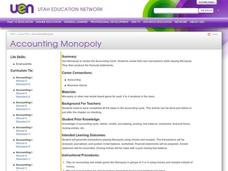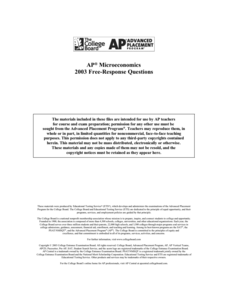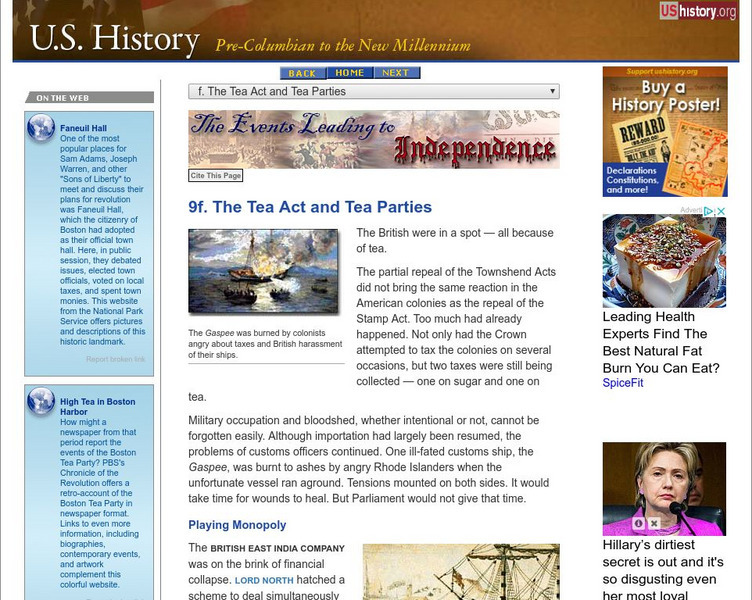Curated OER
Accounting Monopoly
Students use Monopoly to review the accounting cycle. They create their own transactions while playing Monopoly. Students produce the financial statements that will match the transactions of the game.
Curated OER
Accounting Monopoly Simulation
Twelfth graders make journal entries of the transactions (instead of exchanging money) during a Monopoly game on day one of the lesson. They post on day two and create worksheets/correct errors on day three.
College Board
2003 AP® Microeconomics Free-Response Questions
A company producing smoke alarms has a monopoly. However, what factors influence its profit and production? A series of prompts from College Board asks learners to consider the impact. Other practice problems include examining what...
Curated OER
Business Practices and Competition
Students identify the costs and benefits of large corporations and monopoly industries. Using the internet, they discover how businesses use different types of exploitation to maximize their profits. They read two articles about plants...
Curated OER
Why did the Homestead Strike turn violent?
Fifth graders practice reading skills while looking at different accounts of The Homestead Strike. In this reading skills lesson, 5th graders practice sourcing, close reading, and corroboration through reading a timeline and...
Curated OER
A Lesson To Accompany "The First Bank of the United States: A Chapter in the History of Central Banking"
Here is an interesting topic. Learners examine the economics that led to the founding of the First Bank of America. They participate in a reader's theater experience depicting the debate between Alexander Hamilton and Thomas Jefferson...
Curated OER
Money Management
Students role play buying and selling items. In this economics lesson, students are given play money with which to purchase items, as well as value their own items for others to buy. Each student in the group works together to decide...
Independence Hall Association
U.s. History: The Tea Act and Tea Parties
Read the text of the Tea Act, passed by the British Parliament primarily as a way to rescue the failing British East India Company. Find out about the colonists' reactions to this tax, and read a first-hand account of the Boston Tea Party.









